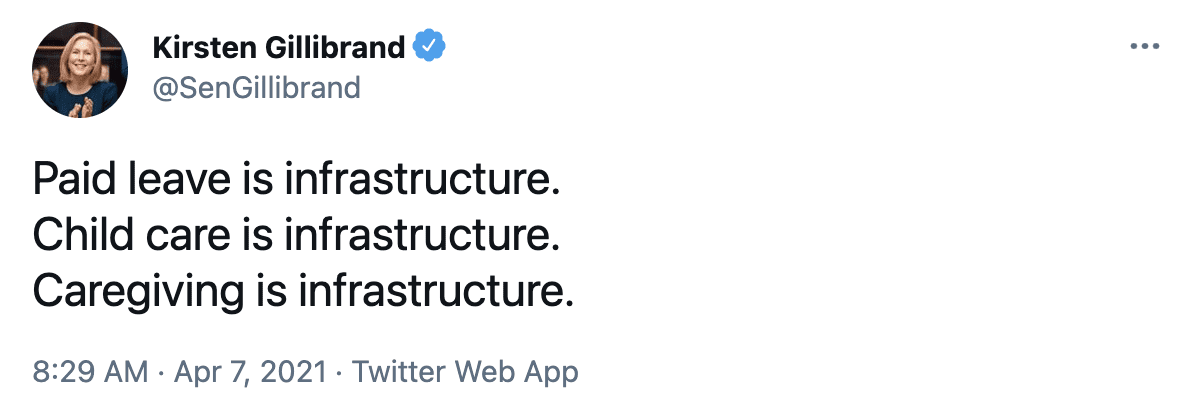A Letter to the Editor of The Republican from Donna Haghighat
Donna Haghighat, is a member of WFN and the CEO of the Women’s Fund of Western Massachusetts. Her letter (below) was written in response to a piece titled, Roads, bridges aren’t’ like caregiving, and was published on April 15, 2021.

The Republican editorial “Roads, bridges aren’t like caregiving,” April 15, page C8, rightly called out Democrats for trying to label everything as infrastructure. However, it missed the point that caregiving, while not technically infrastructure as Senator Gillibrand tweeted, is as important as infrastructure and should receive the same level of funding, consideration, and prioritization. Women make up the majority of those who were employed–and are now unemployed–in the care sector. Fixing this industry is urgent as many women seek to participate in the labor force and have long awaited wages that accurately value the childcare and eldercare that so many families hire.

Our failure to create a robust and resilient care sector is why so many childcare centers or home daycares closed, why schools stayed closed for an extended period, and why transmission of COVID-19 was so rampant among nursing homes and other long-term care facilities. Many of these facilities hire part-time staff with below middle-class wages forcing care workers to patch together wages by working in more than one facility and thereby becoming the unwitting transmitters of the virus in the early days of COVID’s US arrival.
If the federal government aims to get people back to work, focusing on infrastructure first will not get those who lost the most jobs–women–back to work. Focusing on the care sector with an equitable lens that includes fair wages and workplace policies would mean creating a sector that supports and uplifts women in the labor force. Such an equitable sector will propel the economic, health, social, environmental, and cultural vibrancy of our country.
At the Women’s Fund of Western Massachusetts, we understand that in the Greater Springfield region many of the mostly women of color who were displaced from the workforce worked in the care sector, not the construction sector. A robust care sector must be part of a ‘shecovery’ strategy that gets women back to work and helps communities thrive. It is part of our focus in leading a multi-organization partnership to create a greater Springfield economic security hub focused on women of color. This work also recognizes that much of the caregiving that happens in our homes and our community is unpaid work provided by women.
We agree that “roads and bridges aren’t like caregiving.” Caregiving is a key investment vehicle to put those who lost the most jobs back to work while investing in small business and entrepreneurship growth (home daycare centers and larger daycare centers), advancing women and men of color, and providing them with higher wages for the critical work they perform. By focusing attention on the care sector, we can build an inclusive community that is cared for, valued, and resilient to whatever pandemics or disasters will come.
Donna Haghighat, CEO of The Women’s Fund of Western Massachusetts